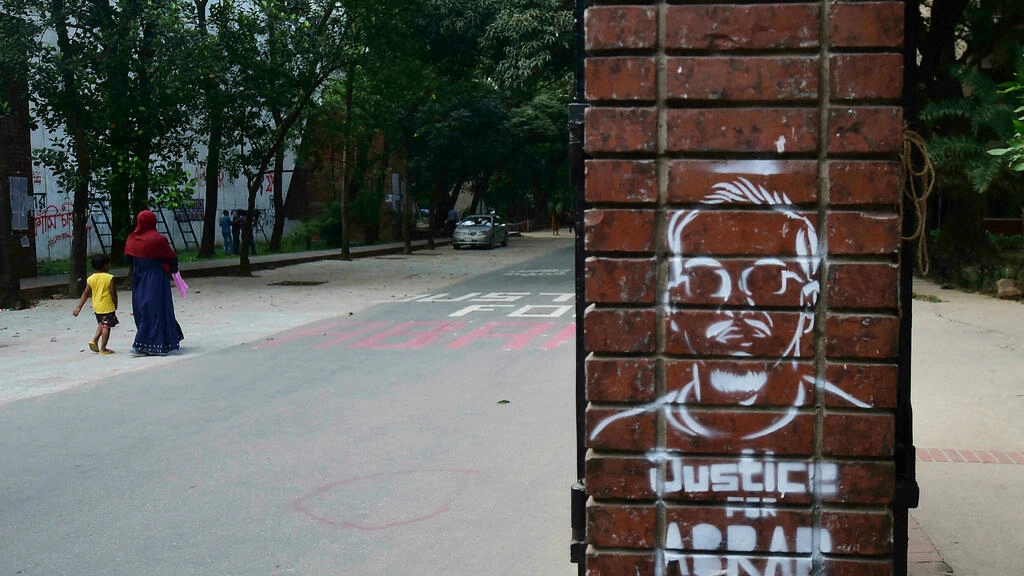
‘I am happy with the verdict,’ Abrar Fahad’s father told reporters outside court | Photo courtesy of MUNIR UZ ZAMAN – AFP
DHAKA — Bangladesh sentenced 20 university students to death on Wednesday for the brutal 2019 murder of a young man who criticized the government on social media.
The battered body of Abrar Fahad, 21, was found in his university dormitory hours after he wrote a Facebook post slamming Prime Minister Sheikh Hasina for signing a water-sharing deal with India.
He was beaten with a cricket bat and other blunt objects for six hours by 25 fellow students who were members of the ruling Awami League’s student wing, the Bangladesh Chhatra League (BCL).
“I am happy with the verdict,” Fahad’s father Barkat Ullah told reporters outside court after the verdict. “I hope the punishments will be served soon.”
Prosecutor Abdullah Abu told AFP that the remaining five perpetrators were sentenced to life imprisonment.
All those handed death sentences were between 20 and 22 years old and attended the elite Bangladesh University of Engineering and Technology alongside Fahad.
Three of the defendants are still at large while the rest were in the courtroom.
A lawyer for the defendants said the sentence would be appealed.
‘Highest punishment’
Fahad had put up a post on Facebook that went viral hours before his death.
In it, he criticized the government for signing an accord that allowed India to take water from a river that lies on the boundary the two countries share.
Fahad had been seen — in leaked CCTV footage that went viral on social media — walking into a dormitory with some BCL activists.
About six hours later, his body was carried out by the students and laid on the ground.
The BCL has earned notoriety in recent years after some of its members were accused of killing, violence and extortion.
In 2018, its members allegedly used violence to suppress a major anti-government student protest.
Those protests were sparked by anger over road safety after a student was killed by a speeding bus.
Protesters have called for the attackers to be harshly punished and for the BCL to be banned.
Hasina vowed soon after the attacks that the killers would get the “highest punishment”.
Death sentences are common in Bangladesh with hundreds of people on death row. All executions are by hanging, a legacy of the British colonial era.
In August, a court sentenced six Islamist extremists to death for the brutal murders of two gay rights activists.